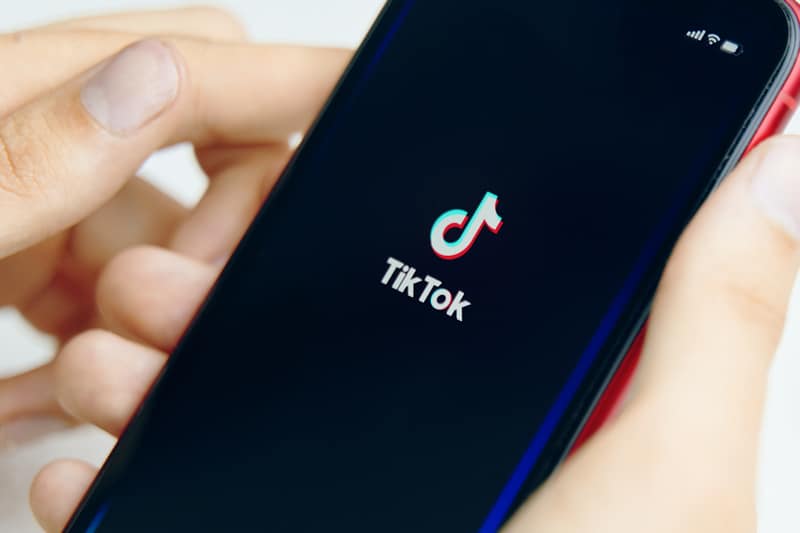TikTok, just like Instagram a few years ago, is experiencing a huge boom in terms of active users and popularity. The app has more than 1 billion monthly active users and it is one of the most popular downloaded applications in the App Store. Such figures are astonishing, especially considering that the app has been around for less than 2 years. Tik Tok’s user base is also projected to grow in the next years.
If you have a smartphone or if you live with teenagers or just like to keep up with technology, chances are you have already heard of TikTok. In case you are not familiar with this social media app, you should at least know that it is an application where users share short funny clips that easily go viral. It is the potential for virality that made the app extremely popular. Similar to Vine, the content shared on this platform varies greatly: from make-up tutorials to world-history reenacting, TikTok offers content for different users, predominantly teenagers.
However, lately, TikTok has been criticized by the US senators for censorship, privacy and for concerns about child safety. Are the concerns real? What should you know about the privacy issues related to Tik Tok? Should you be worried? If you want to find some solid answers to such questions, keep reading this article.
What Is TikTok and Why Is It So Popular?
 TikTok is owned by the Chinese company ByteDance and its story is rather complicated. The TikTok was born out of an acquisition by the Chinese startup of Musical.ly, a rather popular app in the US and the Western world, but that had originally nothing to do with social media. ByteDance took the idea of the original app and innovate it to create the concept of what is now known as TikTok. Today, the Chinese startup is one of the most valuable companies in the world, rated at 75 billion dollars.
TikTok is owned by the Chinese company ByteDance and its story is rather complicated. The TikTok was born out of an acquisition by the Chinese startup of Musical.ly, a rather popular app in the US and the Western world, but that had originally nothing to do with social media. ByteDance took the idea of the original app and innovate it to create the concept of what is now known as TikTok. Today, the Chinese startup is one of the most valuable companies in the world, rated at 75 billion dollars.
In terms of downloading, Tiktok has beaten Instagram, Snapchat, and Facebook. What seemed to make it popular is the spontaneity of the short clips, that allow users to goof around for a while, as opposed to Instagram, where the people have started to feel the pressure of having to post perfect pictures and amazing content. Videos are shared instantly and can quickly reach millions of users and go viral in a matter of minutes. The user base of TikTok is a lot younger than the average of the rest of the competitors, with the majority of users being less than 18 years old.
TikTok Privacy Issues
It is the younger user base that has brought TikTok into trouble. February of this year saw Tik Tok having to face accusation for child-privacy US laws violation. The Committee on Foreign Investment in the United States has opened an investigation against TikTok and its privacy policy and some issues have emerged. The company has mainly been accused to share user data with the Chinese Government. That is due to a Chinese law created in 2017 requiring companies operating in the country to cooperate on national intelligence. Some even argue that the app is susceptible to censorship by the Chinese government. While the company refuses to admit the truthfulness of such accusations, the senate is urging US citizens to be careful about the content and personal data shared in this platform.The Response From The Company and Further Investigations
The Response From The Company and Further Investigations
TikTok proactively responded to such accusations and tried to improve its position and its privacy policy in order not to lose important users and popularity. Indeed, to boost transparency, the social media app has recently launched a content moderation center. The center is designed to provide relevant information on the source code, the internal instructions of the software and to offer better details on privacy and security. All this to improve its efforts in terms of protection of users’ data.
The company is also looking for a new CEO to run TikTok in the US, to distance itself from the Chinese government, in an attempt to loosen up the worries of the US senate. How innocuous is the app in reality? How can we know whether the Chinese government is indeed surveilling the millions of teenagers using the app daily?
Content Removal and Data Breach
Many users have noticed a rather common trend in terms of content removals. Some of the most obvious ones include videos concerning Hong Kong protests. However, the company states that such removals have nothing to do with requirements by the Chinese governments. The fault might be of poorly trained moderators, but the US Senate does not seem to buy that idea. Tik Tok claims to handle moderation separately for different regions, meaning that censorship by the Chinese government would not affect US users, for instance.
The biggest fear related to the access of US users’ data by the Chinese government is the creation of an accurate picture of people’s lives and habits, which would create incredible opportunities to blackmail and to use such information for making incredible amounts of income. This is why, for the moment, the US Department of Defense is encouraging its employees to avoid installing the app on their smartphones. Indeed, some investigation found out that the application can collect not only location and images but also biometric data. Because of Chinese law, the company cannot refuse to share data with the Chinese government upon request.
The security research firm Checkpoint has discovered some of the main weak points in terms of data security in TikTok. However, the same company also going out that TikTok has developed an update recently to fix such weaknesses which would allow attackers to compromise accounts.
Similar breaches of personal data have been experienced by Instagram and Facebook users as well, meaning that the threats to security and privacy that social media pose to users are not limited to TikTok. However, it is not an exaggeration to say that TikTok might pose greater threats due to the probable influence of the Chinese government on the app’s operations.
© 2016-2020 by LiVentures. All rights reserved. No part of this document may be reproduced or transmitted in any form or by any means, electronic, mechanical, photocopying, recording, or otherwise, without prior written permission of LiVentures.







